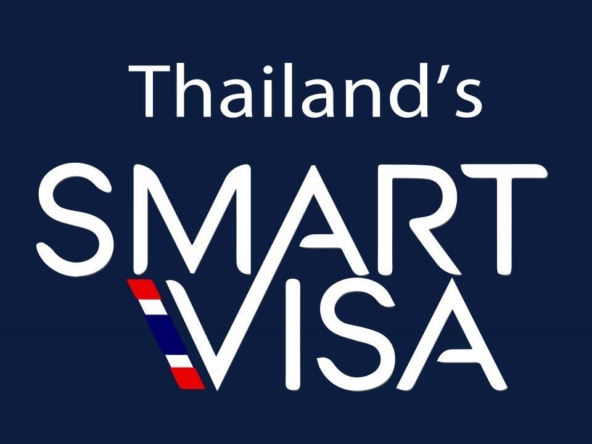1. Types of Europe Visas for Foreign Nationals
Schengen Visa: A Gateway to 26 European Countries
The Schengen visa is the most popular visa for travelers looking to explore multiple European countries. It grants the holder the ability to travel freely within the Schengen Area, which includes 26 European nations. This visa is ideal for short-term stays and is typically valid for 90 days within a 180-day period.
- Eligibility: The Schengen visa is available for tourists, business travelers, and those visiting family or friends in the Schengen Area.
- Benefits: Allows travel to all Schengen member countries (including France, Germany, Italy, Spain, and more) with a single visa.
National Visa (Long-Stay Visa)
The National visa is designed for those planning to stay in a specific European country for longer than 90 days. This visa is issued by the individual country and is ideal for those moving to Europe for work, study, or family reasons.
- Work Visa: Foreign nationals can apply for a national work visa to be employed in a European country. Most countries require a job offer from a local employer before granting a work visa.
- Study Visa: Students wishing to pursue higher education in Europe can apply for a study visa. Many European countries offer affordable or high-quality education, making Europe an attractive destination for international students.
EU Blue Card
The EU Blue Card is a work and residence permit for highly skilled workers from non-EU countries. This visa allows professionals in specific fields to live and work in Europe.
- Eligibility: Applicants must have a recognized degree or qualifications and an employment contract or a job offer with a minimum salary threshold set by the host country.
- Benefits: Provides long-term residency rights, work flexibility, and potential access to permanent residency in the EU after a set number of years.
Startup Visa (Entrepreneur Visa)
For foreign entrepreneurs looking to establish a business in Europe, several EU countries offer a Startup Visa or Entrepreneur Visa. This visa allows non-EU nationals to establish and operate their own business within the country, contributing to its economy.
- Eligibility: Entrepreneurs must show proof of sufficient funds, a viable business plan, and the potential for job creation.
- Benefits: The visa typically offers a pathway to long-term residence, and some countries provide tax incentives for startups.
Family Reunification Visa
Foreign nationals wishing to join family members living in Europe can apply for a family reunification visa. This visa is available to spouses, children, or dependent relatives of individuals who have lawful residence in an EU country.
- Eligibility: The sponsor in the European country must meet certain financial and accommodation requirements to prove they can support their family members.
2. How to Apply for a Europe Visa
The process of applying for a European visa varies depending on the type of visa and the specific country. However, the general steps are as follows:
- Step 1: Identify the visa type you need based on the purpose of your visit (tourism, work, study, etc.).
- Step 2: Collect the required documents, such as a valid passport, proof of accommodation, travel insurance, financial statements, and an invitation letter if applicable.
- Step 3: Submit the application through the Embassy or Consulate of the country where you plan to spend the most time (for Schengen visas) or the country you intend to reside in (for national visas).
- Step 4: Attend a visa interview (if required) and pay the visa processing fee.
- Step 5: Await the decision and receive your visa if approved.
The Schengen visa application generally takes around 15 days for processing, though this may vary depending on the country and the specific circumstances of your application.
3. Benefits of the Europe Visa System for Foreign Nationals
The Europe visa system offers numerous benefits to foreign nationals looking to visit, work, or invest in European countries. Some key advantages include:
Freedom of Movement
For those holding a Schengen visa, one of the biggest benefits is the ability to move freely between the Schengen Area countries. This means that you can visit multiple countries with a single visa, making it ideal for tourists and business travelers.
Long-Term Residency Opportunities
The EU Blue Card, Startup Visa, and other national visas offer foreign nationals the opportunity to apply for long-term residency or permanent residency in Europe. Many countries allow applicants to apply for permanent residency after a certain number of years (typically 5 years) of living and working in the country.
Access to Quality Healthcare and Education
European countries are known for offering world-class healthcare and education. Many European nations offer affordable or even free education at public universities for international students. Similarly, residents of European countries benefit from comprehensive healthcare systems.
Tax Benefits and Incentives
Certain countries in Europe provide tax benefits or incentives for foreign nationals investing in businesses or working in specific sectors. For instance, some countries offer favorable tax rates for entrepreneurs, while others have tax treaties to avoid double taxation for foreign workers.
4. Visa-Free Travel within the Schengen Area
The Schengen Area consists of 26 European countries that have abolished border controls between themselves, allowing visa holders to travel freely within these nations.
- Countries Included: Popular Schengen countries include Germany, France, Italy, Spain, Netherlands, and Sweden, among others.
- Travel Flexibility: With a Schengen visa, foreign nationals can travel across member countries without having to go through passport control each time they enter a new country.
5. How to Choose the Right European Visa for You
Choosing the right European visa depends on your individual circumstances. Here are a few tips to help you select the appropriate visa type:
- Tourists should apply for the Schengen visa if they plan to visit multiple countries within the Schengen Area.
- Students should apply for a study visa from the country they intend to study in, as each country has different requirements and rules for international students.
- Professionals with a job offer can apply for a work visa or the EU Blue Card if they qualify.
- Entrepreneurs looking to start a business in Europe should explore the Startup Visa or Entrepreneur Visa offered by various European countries.
6. Important Considerations for Applying for a Europe Visa
When applying for a European visa, there are several factors to keep in mind:
- Document Requirements: Each country has its own specific visa requirements, so make sure to check the embassy or consulate website for up-to-date information on what documents you need to submit.
- Processing Times: Visa processing times can vary, so it’s important to apply well in advance of your planned travel date.
- Travel Insurance: Many European visas require applicants to show proof of travel insurance, which covers medical emergencies and other unforeseen events during your stay.
Conclusion: Why the Europe Visa System is an Attractive Option for Foreign Nationals
The Europe visa system offers foreign nationals numerous opportunities to visit, work, study, and invest in some of the world’s most developed and culturally rich countries. Whether you’re looking to explore Europe as a tourist, start a business, or build a career, there are a variety of visa options that can help you achieve your goals.
By understanding the different types of European visas, their eligibility requirements, and benefits, you can make an informed decision and ensure a smooth visa application process. With flexible visa policies, opportunities for long-term residency, and access to high-quality services, Eur




